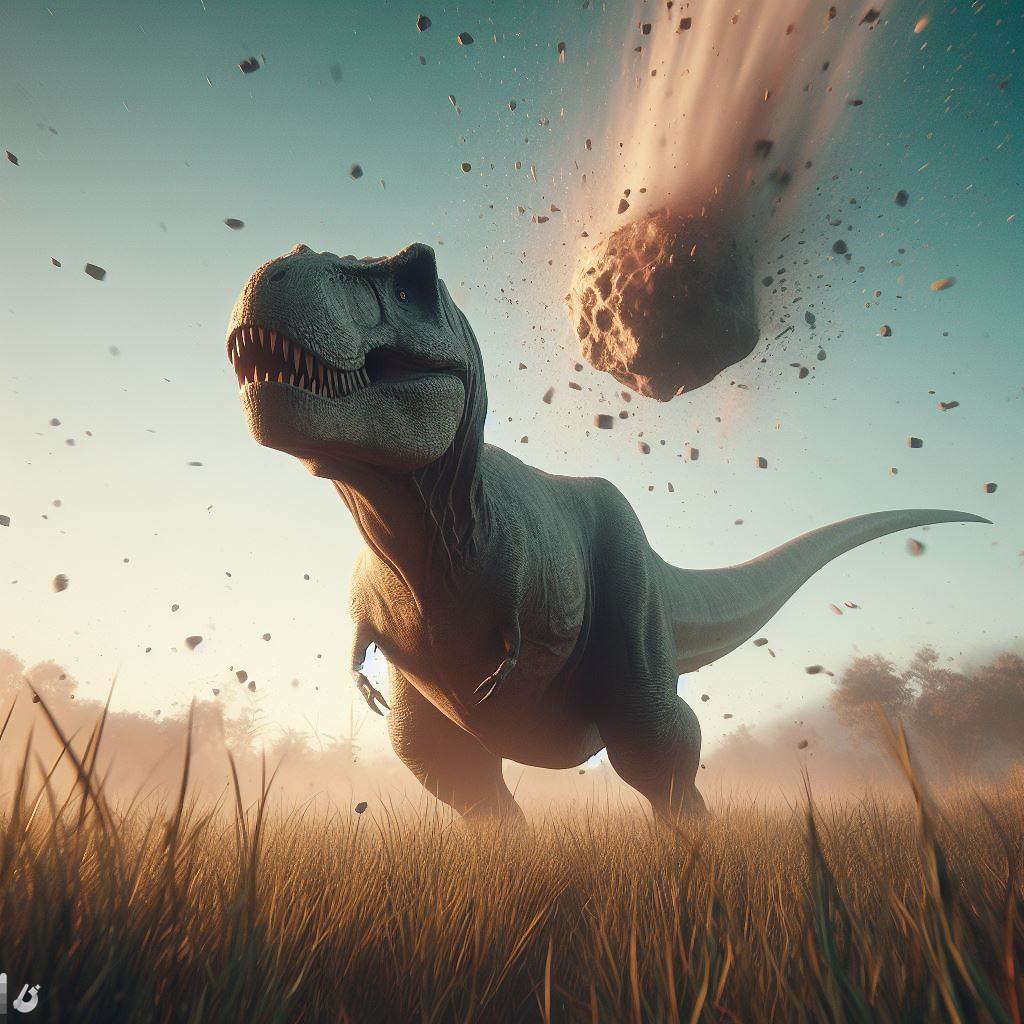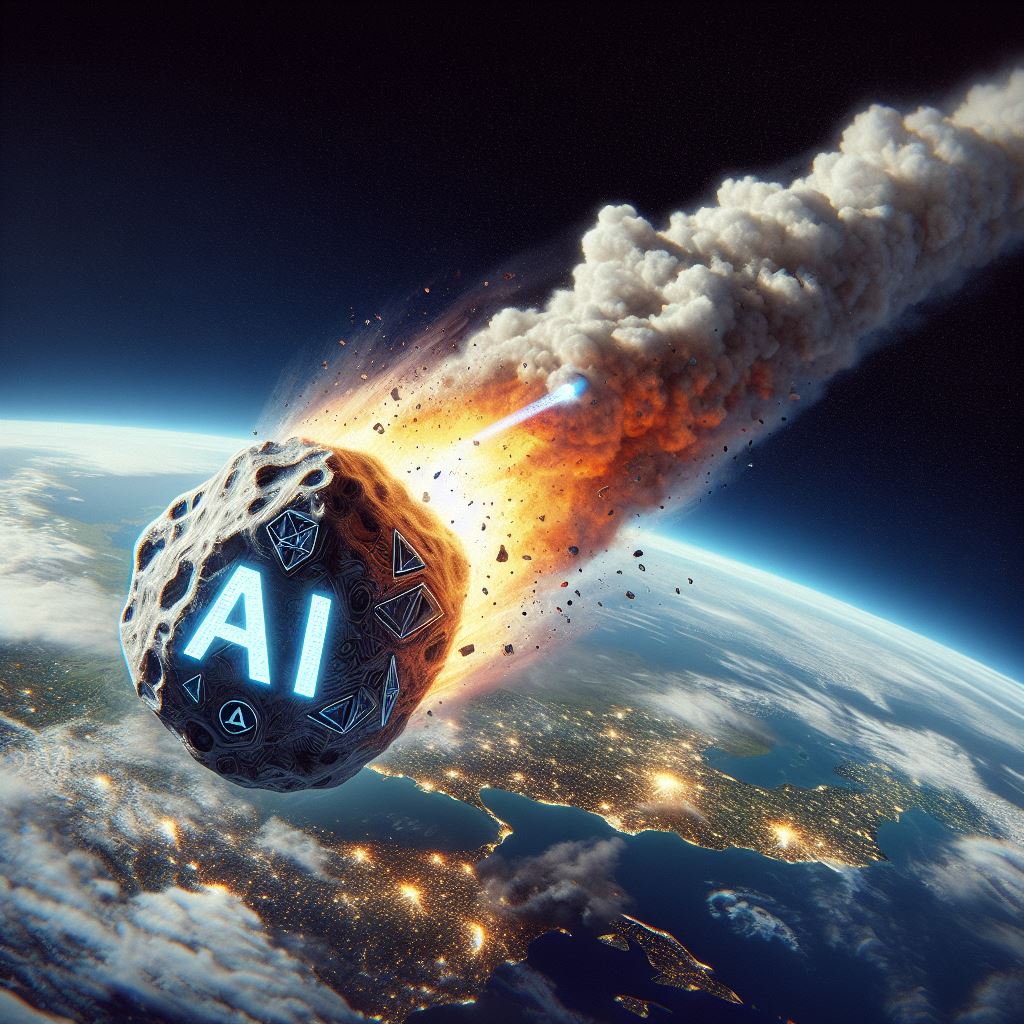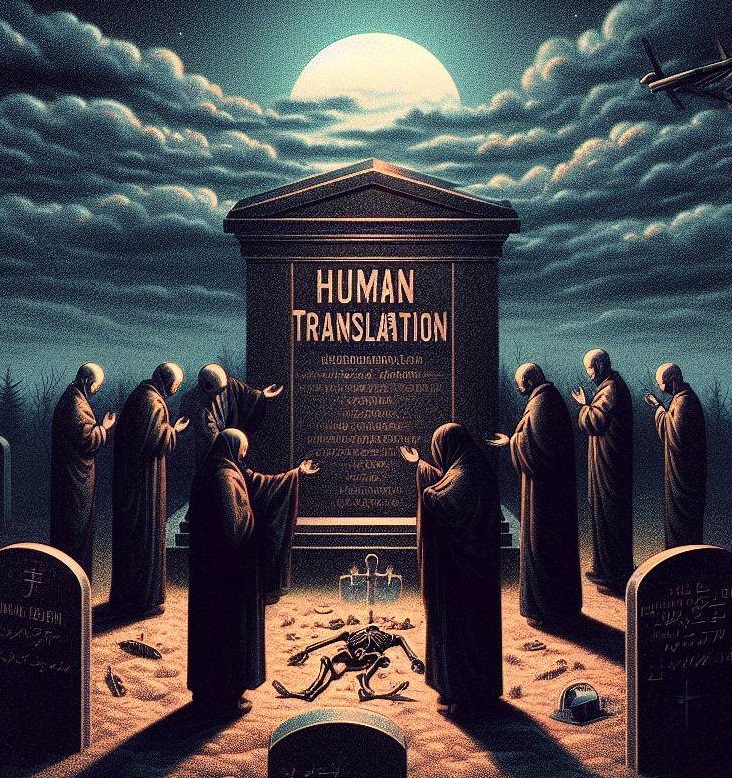Business Survival as a Translator:Dinosaurs, Slide Rules, and Human Translators: Some Thoughts on Extinctions
by William Lise (November 20, 2023)
Two of the groups in the title—dinosaurs and slide rules—are extinct, but the circumstances and processes of their extinction were qualitatively quite different.
 The generally accepted theory of dinosaur extinction is that an asteroid struck Earth, causing a climate change that killed off the food supply for dinosaurs. The dinosaurs, of course, could not have seen the asteroid coming, and they were powerless to find other food sources.
The generally accepted theory of dinosaur extinction is that an asteroid struck Earth, causing a climate change that killed off the food supply for dinosaurs. The dinosaurs, of course, could not have seen the asteroid coming, and they were powerless to find other food sources.
Fast forward 66 million years and we have slide rules, which were for several centuries—and particular in the decades immediately before their demise—a tool for calculation commonly used by techies in diverse fields. Then affordable handheld calculators appeared, and it was the death of slide rules.
Then affordable handheld calculators appeared, and it was the death of slide rules.
Unlike the asteroid that sealed the fate of dinosaurs, the demise of the slide rule was definitely on the radar screens of people in industries who would be affected by it.  Some of the companies focusing on slide rules went out of business. But others, notably Hemmi Slide Rule in Japan, simply shifted to manufacturing other things; today they make valves for the semiconductor industry. Hemmi was able to switch to another food source.
Some of the companies focusing on slide rules went out of business. But others, notably Hemmi Slide Rule in Japan, simply shifted to manufacturing other things; today they make valves for the semiconductor industry. Hemmi was able to switch to another food source.
Whether you liken the appearance of AI in the translation business to the asteroid 66 million years ago or the  handheld calculators that appeared in the latter half of the 20th century, the root cause of the destruction of the human translator ecosystem has already occurred, and, unlike the grim-reaper asteroid that caused dinosaurs to disappear, AI was predictable and understandable by the people who would be affected by it. In that sense, the appearance of AI should have been a more HP calculator-like event; what we are seeing however, is the beginning of a more asteroid-like extinction of translators making their living translating. There are some little-talked-about reasons for this.
handheld calculators that appeared in the latter half of the 20th century, the root cause of the destruction of the human translator ecosystem has already occurred, and, unlike the grim-reaper asteroid that caused dinosaurs to disappear, AI was predictable and understandable by the people who would be affected by it. In that sense, the appearance of AI should have been a more HP calculator-like event; what we are seeing however, is the beginning of a more asteroid-like extinction of translators making their living translating. There are some little-talked-about reasons for this.
Translation agencies purchase and resell most of the translation provided to translation consumers and are embracing AI as a way to survive and lower their translation purchase price. Their use of AI deprives agency-dependent freelancers of their food source. Can translators find another translation food source, thereby avoiding joining the ranks of dinosaurs and slide rules? I think the answer for the vast majority of translators is definitely no, they will not be able to find another source of translation work. Freelance translators as a group are poorly equipped to survive in the business world, and that characteristic is precisely why many have chosen translation to make their living.
Talk of translators adopting AI is fine, but because agencies will not be ordering translations from human translators, it is totally unrelated to their surviving, other than the possibility of them competing a bit more effectively with agencies for direct clients. Most translators will not, however, be able to compete for and acquire direct clients; they will not find alternate translation food sources.
 For most currently agency-dependent translators, the end can be seen on the near horizon. In fact, because even direct clients can adopt AI for translation and order only post-editing, even translators who have direct clients are not totally future-proofed. They will, however, likely survive longer than members of the already-shrinking ranks of agency-dependent human translators.
For most currently agency-dependent translators, the end can be seen on the near horizon. In fact, because even direct clients can adopt AI for translation and order only post-editing, even translators who have direct clients are not totally future-proofed. They will, however, likely survive longer than members of the already-shrinking ranks of agency-dependent human translators.